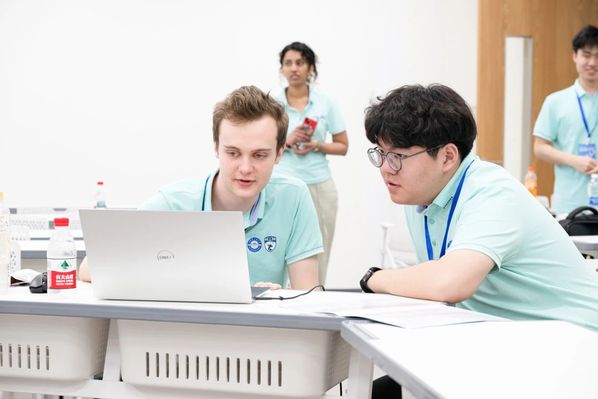The 2025 International Youth Innovation Camp in Ocean Science and Technology, Hainan, initiated by the Southampton Ocean Engineering Joint Institute at HEU and co-organized by the Sanya Yazhou Bay Science and Technology City Administration and the Nanhai Institute of HEU, was held in Yazhou Bay, Sanya City, Hainan, China from March 30 to April 5.

This camp was driven by project-based learning, promoting academic discussion and exchange between student project groups, and incubating international research outcomes of university students. The activity focused on fields such as acoustic engineering, energy, control engineering, and maritime research. Through free academic exchange, it broadened the horizons and thinking of domestic and international students, jointly proposing valuable thoughts and solutions for technological progress in the marine field.



On April 2nd morning, all camp participants visited Zhejiang University Hainan Nanfan Breeding Base for a field study. Professor Shu Qingyao introduced the complete process of breeding new rice varieties and other cutting-edge technologies. Under the guidance of four researchers, participants entered the paddy fields and took part in rice harvesting activities.




The group then proceeded to the base's tomato garden where they picked ripe tomatoes. Everyone enjoyed tasting their freshly harvested fruits, praising their sweet and juicy flavor. Students engaged in discussions about agricultural culture and smart agriculture traceability technologies.


The visit concluded at the three-story observation deck overlooking the fields. The view featured thriving green crops, intricate smart irrigation systems, and rice paddies stretching to the horizon. Groups also explored the aerial walkway and straw maze. On the deck, Chinese participants shared the story of Academician Yuan Longping and China's hybrid rice research journey in English with their British counterparts. This experience fostered both agricultural technology understanding and cross-cultural exchange.


In the afternoon, groups continued their themed discussions, building on previous days' work. They analyzed domestic and international projects, examining their technical merits, drawbacks, and constraints. Team members developed initial group reports through consulting teaching assistants, researching relevant papers online, and coordinating group efforts.


During evening discussions, the four project teams reviewed literature based on their assigned tasks. They shared progress updates and discussed the division of tasks for final presentations and exhibition programs. Both Chinese and British participants showed enthusiasm for the discussions and anticipated the final presentations.
As the camp's third day drew to a close, participants had deepened their understanding of emerging technologies through site visits and group work while developing their teamwork and communication skills. The program served as an effective platform for international academic exchange, fostering interest in research and cross-cultural collaboration. As the camp continues, participants will further develop through joint efforts, building a strong foundation for future academic and international cooperation.
Publicity Dept. of the CYL Committee of the JEI and College of Future Technology
Editor:Yu Hongyang,Zhao Ran
Photography:Chen Jiahao, Zhao Ran, Yu Hongyang
Layout:Tan Xin
Executive Editor:Yun Jingyue
Review:Wang Qiuying


